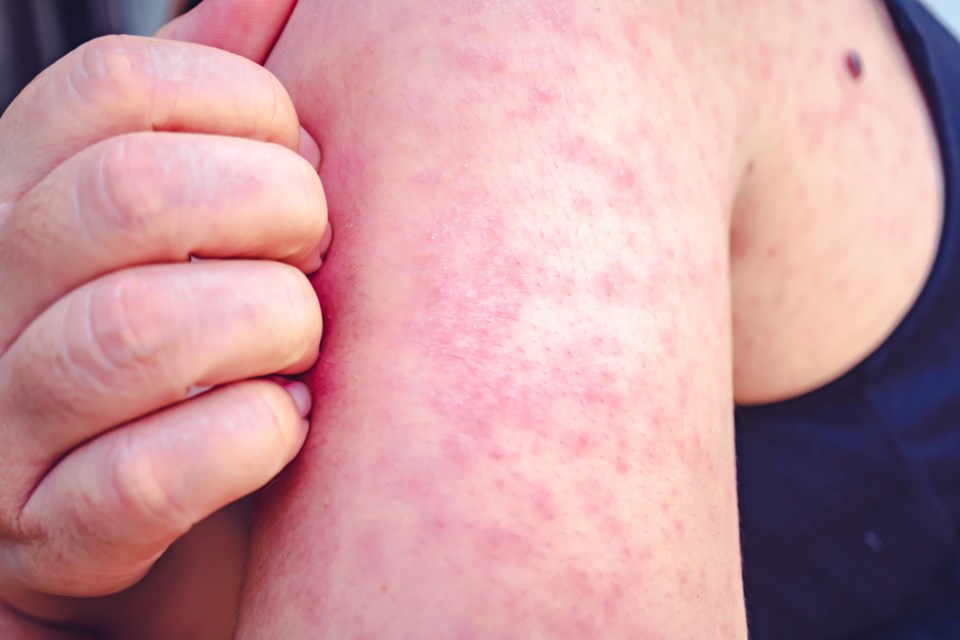THUNDER BAY — A global rise in measles cases could present a risk for travellers leaving the region, particularly for anyone with young children who can experience the most severe symptoms.
Officials with the Thunder Bay District and Northwestern Health Units are reminding people to ensure their scheduled vaccinations are up-to-date, especially if they intend to travel.
February and March are typically times where people decide to travel outside the region, given February sees reading weeks as part of post-secondary school calendars, and the presence of the March break for younger students. Both health units are specifically cautioning people against measles, given numbers in Ontario and across Canada are going up.
“It is quite a significant concern to be exposed to measles,” said Laura Dennis, the manager of the vaccine-preventable diseases program at the Thunder Bay District Health Unit. “So, what we're seeing right now is — although it's rare — we are seeing some more cases since the … COVID-19 pandemic and so some cases are popping up around the world.”
“We want to be sure that those who are travelling are protected against measles since it is a vaccine-preventable disease.”
Measles, aside from having serious health effects, particularly for young children, is also highly contagious, and the virus is able to survive for hours in the air and on surfaces, Dennis said. People who catch the virus can be contagious for four to five days, she said, adding that if one person has it, 90 per cent of people who are unvaccinated and share the same airspace are likely to become infected themselves. Children are typically vaccinated against measles at a young age as part of their routine immunizations.
Ontario reported 16 new cases of measles in the week from Jan. 26 to Feb. 1, 2025 — the most recent data available as of publishing. Measles outbreaks have also been reported in other parts of Canada, the United States — particularly in Texas — as well as in Europe.
That’s why Shannon Brown, the manager of vaccine-preventable diseases at the Northwestern Health Unit, said it’s important for travellers to double check their immunization records and confirm vaccination requirements for any destination they’re going to visit.
“So, we did want to let people know that it's not just international travel — that it could be travel within our own province and neighboring provinces,” Brown said. “And so people that are unimmunized or partially immunized are at higher risk of being exposed to measles and potentially bringing it back to their family or their community.”
Both health units say immunization rates are very high in their catchment areas.
“We have … a good high immunization rate in our area,” Brown said. “So, we're hoping that outbreaks or cases won't be bad in our area, but we want to ensure that anybody that's unimmunized or partially immunized has the opportunity to come in and get the vaccine.”
Dennis at the Thunder Bay health unit was able to confirm that its catchment area has no active cases of measles and the relatively high immunization rate against the disease across the region bodes well for herd immunity.
“That can help protect those in our community who may not be able to receive vaccinations,” she said. “Because of those that are vaccinated, providing that herd immunity, as we call it.”
-With files from Leigh Nunan
